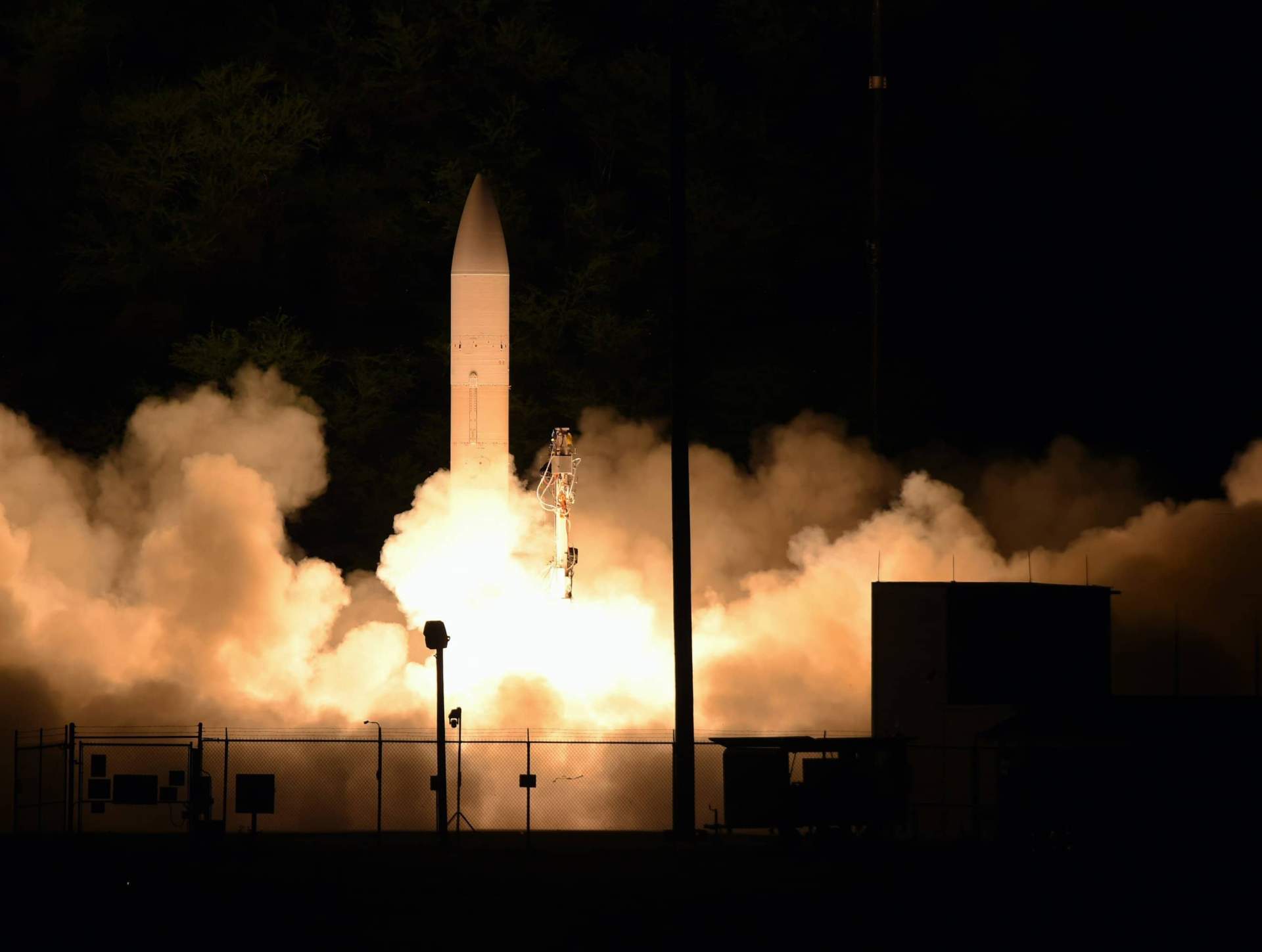Officials: U.S. Must Move Faster in Testing and Fielding Hypersonics, 5G Networks

The best way to counter China’s and Russia’s high-tech advances is to change the Pentagon’s and Congress’ risk-aversion culture and embrace quicker – but still robust – testing and fielding of programs, a senior defense official said Tuesday.
Mark Lewis, speaking at an online forum of the Hudson Institute, said, “there are dumb failures and noble failures” in testing. Some of the “dumb failures” occur because the testing was not rapid or robust, which has the potential to sink a project but is also easily fixable in the future.
In looking to avoid that mistake, the director of defense research and engineering for modernization added, “we recognize we are in a race,” particularly with China in the development of hypersonic weapons and the application of 5G connectivity to the battlefield.
All too often, there has been a failure to transition from science, technology, research and development projects to full production because they lacked continuous testing or there was an unwillingness to accept any failure, he said.
Speaking at the Atlantic Council in another online security forum on modernization, Michele Flournoy, former undersecretary of defense for policy, called that gap “the graveyard” of promising technology that needs to be eliminated.
“We have to get Congress to trust DoD taking more risk” in testing new systems like hypersonics, she added.
Lewis also used hypersonics as an example, saying “we really do think it’s a game-changer” in military thinking. These systems offer speed, maneuverability and trajectory and range.
Because they are in the atmosphere but moving at five times the speed of sound, hypersonics weapons “are more difficult to detect from the ground and from space.”
Right now, the Pentagon is looking at “a high-low mix” of hypersonics, as it did with the F-16s and F-22 fighters to balance capability and cost. That means testing and eventually fielding boost-glide and air-breathing systems.
He predicted initial deliveries by the mid-2020s, with 40 flight tests for both systems before then.
“Our competitors should not doubt that we are … in a very aggressive program” of testing and development, Lewis said.
At the Atlantic Council, retired Marine Corps Gen. James Cartwright said developing “technology is the easy side of the question. What do we want to do with our security as we go forward” was the unanswered question. Flournoy said some answers could come through more wargaming on innovative concepts of operations on new systems like hypersonics and advanced technologies like 5G.Using the connectivity of advanced telecommunications as an example of what future needs will be, Lewis said, “we don’t see 5G as a single goal post.” He termed it a technology that will change over time. “It allows us to do many more things” than were possible in earlier technologies and provides resilience not available in the past. The 5G advantage now is it “provides full connectivity of services and sensors — the internet of things” and allows the services to operate in any environment or domain.
He added, “China is making a big play on the hardware side” of 5G. But potentially more troubling is China’s attempt to set standards on use and operations, particularly through Huawei, an international telecommunications and information provider corporation.
Like it did with 4G, “we think the United States has to lead and set the standards … for deciding the future,” Lewis said. The United States has consistently warned allies and partners the danger that Huawei poses to their security by installing backdoor software to spy on or alter critical infrastructure. U.S. protests have met only with middling success, even in Europe.
Christian Brose, author of Kill Chain and a former staff member of the Senate Armed Services Committee, said at the Atlantic Council forum that the Chinese Communist Party has been “systematically building a military to counter the United States” using advanced technologies.
Lewis said they “learned from us” as the United States rested on its laurels of stealth, making early investment in hypersonics and artificial intelligence and continuing to invest in these areas.
Cartwright drove home that the technologies aren’t just there for technology’s sake, but rather have operational implications if a conflict arose.
“The systems are there [inside the Pentagon]; the cultures are not” to “go very, very fast” in applying software that aid decision-making and response in a crisis, Cartwright said. Instead of thinking days or weeks are available to move forces, the response needs to be available “at the speed of gaming” through artificial intelligence and 5G.
Photo: A common hypersonic glide body (C-HGB) launches from Pacific Missile Range Facility, Kauai, Hawaii, at approximately 10:30 p.m. local time on March 19, 2020. US Navy Photo
Click here to see article on USNI's website










